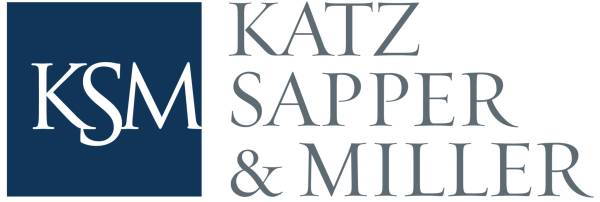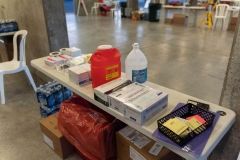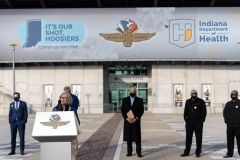
Katz Sapper & Miller News release:
Survey also reveals the COVID-19 pandemic has exposed long-standing industry issues in automation and workforce development
INDIANAPOLIS (November 18, 2020) – In a year of unpredictable outcomes and business projections, the manufacturing industry took a hit early in the COVID-19 pandemic but is bouncing back to end the year strong. The 2020 Indiana Manufacturing Survey: COVID-19 Special Edition, conducted by Katz, Sapper & Miller in partnership with Indiana University’s Kelley School of Business at IUPUI and the Indiana Manufacturers Association, surveyed more than 100 Indiana-based companies and found 93% of respondents think their business will survive the impact of the pandemic.
This echoes the national sentiment found in a Institute for Supply Management poll released earlier this month that revealed manufacturing orders across the U.S. have risen to the highest levels in nearly 17 years. The national index increased to 59.3 in October 2020 – the highest since November 2018 and tops September 2020’s index of 55.4. Additionally, about 11.5 of the 22.2 million nationwide jobs lost this year have been recovered.
Locally, survey respondents wrote that they have increased confidence in telecommunications capabilities, flexible work practices, hygienic work environments, digital marketing efforts, and supply chain and automation innovations as they move into 2021 and beyond.
Survey respondents (44%) cited the Paycheck Protection Program (PPP) as the primary reason their businesses were able to continue operating. To alleviate workforce and income issues, Congress passed the CARES Act in March 2020 which offered several tax changes – credits, payment delays, interest deduction increases – which included millions of dollars in forgivable small business loans as part of the PPP.
“PPP was a game-changer for many of our clients as they were able to shift production, keep employees safe and on the payroll, and adjust supply chain needs accordingly,” said Jason Patch, partner-in-charge of KSM’s Manufacturing and Distribution Services Group. “According to the survey, the program played a key role in manufacturing companies feeling very supported by the federal government during the pandemic.”
Data shows 74% of Hoosier manufacturers felt the federal government did a good job of supporting their businesses this year, and 87% of respondents responded affirmatively when asked the same question about the state government’s support.
While supply chain, workforce development, and automation were issues the industry has struggled with previously, the pandemic forced companies to adapt sooner than many anticipated. Approximately 42% identified adapting business practices – diversifying supply chains, closing operations, accelerating automation changes, implementing social distancing, limiting outside visitors, requiring face masks, and more – as their primary reason for survival.
Overwhelmingly, supply chain management was a critical component to manufacturers’ ability to adjust during the height of the pandemic. Nearly 77% saw their supply chain partners able to maintain industry standard performance, but they acknowledge the pandemic could still have long-term effects moving forward. One in five Hoosier manufacturers say they have started or plan to onshore elements of their supply chain, and 25% say they have or will reduce the exposure of their supply chains to China.
As many line and non-line workers were forced to stay home during mandatory lockdowns, the need to balance a human workforce and automation became clear. Adjusting this practice would not only make operations less susceptible to future pandemics, but also create a much more competitive environment for skilled labor. That leads to another long-standing workforce issue of recruiting, retention, and training of a more flexible workforce that companies have started tackling in full force this year. For example, when asked about anticipated workforce changes, respondents said that they plan to increase available positions, add cross-training opportunities, raise starting wages, and rely less on temp agencies to fill vacancies.
Another top priority during the pandemic was developing new ways to protect workers from COVID-19 so they could come back to work. As businesses began to welcome their workforce back, companies found that implementing CDC-recommended practices kept employees safe and reduced the risk of spreading the virus. Some respondents said applying these safety measures will help in the future to keep employees healthy during regular cold and flu seasons.
“Even with the push from the pandemic to make these adjustments sooner, companies ranked – in order – process and automation, workforce, supply chain, and products as the general areas of business operations they see leading to future change because of their experiences this year,” said Mark Frohlich, associate professor of operations management at the Kelley School of Business at IUPUI. “Our past surveys revealed these long-standing issues before and showed that companies in every subset of the industry were working to find cost-effective solutions. Manufacturing companies, even more so this year, are becoming known for their ability to adapt to ever-changing factors such as technologies, employee standards, and economic issues.”
Download the full report here.
About Katz, Sapper & Miller
Katz, Sapper & Miller is a nationally recognized consulting, tax, and audit firm. Through our deep experience across multiple disciplines and industries, we help our clients make sense of where they’ve been, what’s on the horizon, what’s changing, and what they need to do to prosper in the years ahead. We leverage emerging technologies, combined with our people’s differing perspectives, ingenuity, and creativity, to help our clients solve their most difficult challenges. KSM’s mission is also our passion and our commitment: We inspire great people to do great things. Learn more at https://www.ksmcpa.com/.About the Kelley School of Business on the IUPUI Campus
The Indiana University Kelley School of Business has been a leader in American business education since 1920. With more than 117,000 living alumni and an enrollment exceeding 12,000 students across two campuses and online, the Kelley School is among the premier business schools in the country. The Kelley School at IUPUI is home to a full-time undergraduate program; a graduate certificate for healthcare professionals, master’s and graduate certificate programs in accounting, internal audit and taxation; the Physician MBA and the Evening MBA, which is ranked ninth in the country by U.S. News & World Report. Learn more at https://kelley.iupui.edu/.About the Indiana Manufacturers Association
Formed in 1901, the Indiana Manufacturers Association is the second oldest manufacturers association in the country and the only trade association in Indiana that exclusively focuses on manufacturing. Manufacturing is the driving force of Indiana’s economy, employing more people and contributing more to Indiana’s gross domestic product than any other industry. The Indiana Manufacturers Association, representing more than 1,100 companies, is dedicated to advocating for a business climate that creates, protects, and promotes quality manufacturing jobs in Indiana. The staff of the Indiana Manufacturers Association are recognized experts in areas including tax, environment, labor relations, human resources, energy, workforce development and healthcare. Learn more at https://www.indianamfg.com/.















